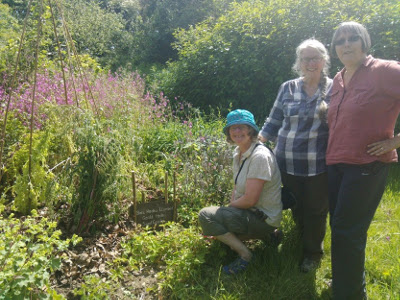Tuesday 26th March 2019, 7:00pm to 9:00pm
Free admittance and all are welcome!
Nine out of 10 mouthfuls of food in the world come from plants grown from seeds. Currently about 75% of seed sold around the world is produced by large agri-chemical companies. At the start of the 1900s it was possible to find over 500 varieties of cabbage seeds available commercially. Towards the end of the century this was down to just over 20. The pattern is the same for most of our favourite vegetables and fruits.
This lack of diversity in our food crops has huge implications for food security, biodiversity and healthy ecosystems. Farmers and gardeners used to plant dozens of different crops, constantly saving seed, developing and adapting varieties to deal with many different challenges of soil, pests, disease, nutrition and flavour. The introduction of F1 hybrids on a commercial basis changed all this.
According to the United Nations Food and Agriculture Organization: “Plant genetic diversity is one of the central preconditions for food security. It provides the genetic traits required to address crop pests, diseases and changing climate conditions”.
We can all do our bit by growing and saving seed from open pollinated seeds and avoiding F1 hybrids.
This month we welcome members of the Lampeter Seed Library to tell us about their project which started about 18 months ago. People can “borrow” seeds for free, collect seed for themselves and return some to the library for others to grow. They are resilient and adapted to local conditions and in these unpredictable times are a big step towards food security and food sovereignty. To help people gain in confidence they run seed saving workshops and always have people on hand to answer questions. Just like the plants they grow from their seeds, their membership is already well over 100 and growing all the time.
Please download and display a poster to help promote this event.
